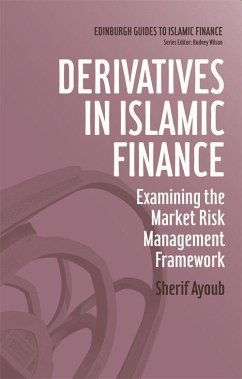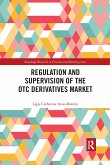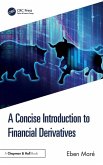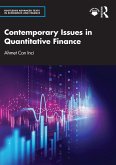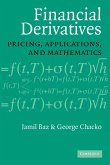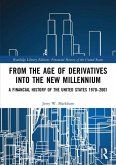'Calculated risk-taking and preservation of wealth are two central pillars of Islamic economics and finance. Balancing the two while working within the global financial markets is a daunting challenge. Sherif Ayoub has done an excellent job of discussing and presenting a variety of views on these oft-competing dimensions. His book will significantly contribute to spurring a new wave of innovative market risk management techniques that conform to the body of rules within Shari'ah as well as having productive market utility.' Adnan Ahmed Yousif, President and Chief Executive, Al Baraka Banking Group The Islamic finance industry faces the challenging task of attempting to reconcile the risk management demands of business entities with the difficulties posed by the seemingly rigid stance taken by some Shari'ah scholars over hedging practices. Offering a fresh perspective, this book confronts the challenge by reformulating how we might think about the theorisation of economic matters in the Islamic faith. It also considers the associated perceptions of permissibility that have until now been confined to the legal sphere, with a focus on contractual elements. The author sheds light on the way the Islamic finance industry conceptualises the role of financial instruments. Paying particular attention to derivatives in a market risk management framework that adheres to the objectives of Islamic jurisprudence, he explores issues such as the avoidance of Riba (usury), Gharar (excessive uncertainty) and Maysir (gambling). Key Features - Scrutinises the rationale and basis of Shari'ah Resolutions and Standards set by various bodies in the Islamic finance industry prohibiting the use of derivative hedging instruments - Uses economic theory and actual market practices to show the benefits of the contemporary risk management framework - Introduces new topics that are relevant to the discussion, including the conceptualisation of money, gambling and financial intermediaries Sherif Ayoub works at the Islamic Development Bank with an advisory responsibility over treasury, investments and the development of the Islamic finance industry. He acquired his PhD from the University of Edinburgh, having been previously educated at Columbia University and Baldwin Wallace University. He has also served as a Visiting Fellow at Harvard University and a Visiting Scholar at INCEIF and IFSB.
Bitte wählen Sie Ihr Anliegen aus.
Rechnungen
Retourenschein anfordern
Bestellstatus
Storno

